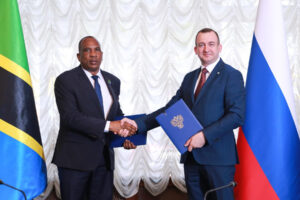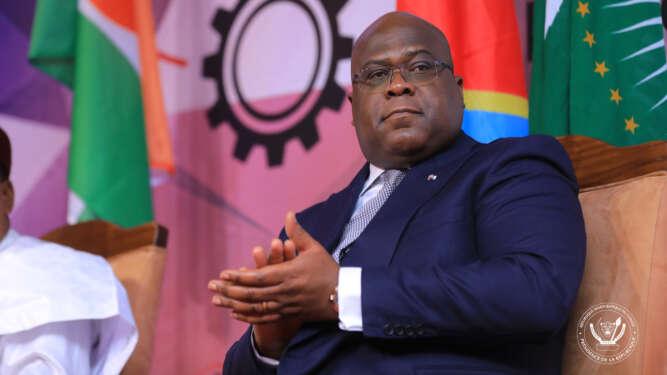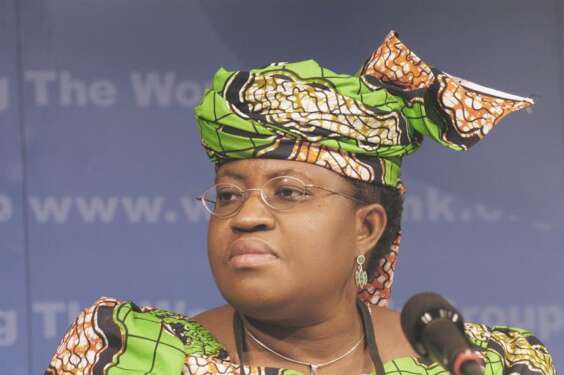- Russia and Tanzania unite to double trade, boost Africa market access
- History as Janngo Capital seals Africa’s largest gender-equal $78M tech VC fund
- South Africa Budget Disappoints Investors as Deficit Widens
- Kenya drops to 6th place in Africa trade barometer
- Tanzania’s bold move to boost cashew nut exports by 2027
- Chinese cities dominate global list of places occupied by billionaires
- Sudan tops up as Africa aims for $25 billion development fund
- Opportunities for youth: Tech firms Gebeya and NVIDIA to train 50,000 developers in Africa
Author: Evelyn Shumba
Evelyn is a finance and business content writer with a passion for business news in Africa. Her expertise is in analyzing African equities and telling the truth when it comes to doing business on the continent!
For the 2030 Agenda for Sustainable Development to be actualized appropriate financing is required and remains a major challenge, added to concerns over insufficient financial accountability, transparency and integrity. The President of the UN General Assembly and the President of the UN Economic and Social Council instituted a 15-member panel on Financial Accountability, Transparency and Integrity (FACTI) in March 2019, to look at ways to address illicit financial flows (IFFs), among other issues. Earlier, the problem of IFFs was brought to light by the Thabo Mbeki-led High-level Panel on Illicit Financial Flows from Africa in a 2015 report. Tackling the issue further the United Nations Conference on Trade and Development (UNCTAD) released the Economic Development in Africa Report 2020 titled, Tackling Financial Flows for Sustainable Development in Africa. All these efforts serve to highlight the urgency with which world leaders need to deal with this issue. …
[elementor-template id="94265"]
A mineral-rich continent, with a fast-growing economic potential and a considerable population stands a chance to become a predominant global hub for trade and investment. Africa’s growth potential has been mainly driven by a significant surge in investment, as indicated by the African Development Bank. As opposed to consumption expenditure driving economic growth, industry players and governments have realised the long-term benefits of investment to the growth of African economies. A longevity approach to a sustained growth of the African continent as a whole is the thrust of Agenda 2063 of the African Union, propelled by the African Continental Free Trade Area (AfCFTA) agreement. …
[elementor-template id="94265"]
For the first time in the 25-year history of the World Trade Organisation (WTO) an African woman is set to take over as Director-General. Three women were shortlisted amongst the final five and ultimately two highly qualified women made it to the final round of consideration for the top position; no woman had ever made it to this stage in the history of the institution. Dr. Ngozi Okonjo-Iweala became the obvious front-runner after her South Korean rival withdrew and the US reversed its previous opposition to her taking the leadership role of the body. There may still be some impediments but the future for African women is bright! …
[elementor-template id="94265"]
A healthy manufacturing sector is a fundamental path to economic growth and development. It is key in creating employment as it absorbs the unemployed population into productive decent paying jobs that help improve their standards of living. Historical evidence shows how industrialisation has transformed countries such as the United Kingdom, Germany and most recently, China, by growing their economies tremendously and earning them amongst the best performing economies in the world. According to the Global Manufacturing Competitive Index, South Africa, Egypt and Nigeria are leading in the evolution of manufacturing in Africa, while Ethiopia and Morocco are following closely behind; all of them have adopted policies that promote manufacturing development. …
[elementor-template id="94265"]
Africa’s financial potential has become an interesting prospect for emerging market investors. Three decades ago a proposal to invest in Africa would have been considered ridiculous, but this is no longer the case. In fact, between 2006 and 2011, the continent was registering the highest returns on FDI at 11.4 percent, even higher than Asia at 9.1 percent, while the global average was 7.1 percent. To add to that according to the World Economic Forum, since 2000 "half of the world's fastest-growing economies have been in Africa. As western markets mature and foreign investments saturate in Asia, Latin America, Central and Eastern Europe, and India, Africa is fast becoming the most lucrative investment destination. The inefficient African markets are an excellent source of excess returns, given the level of perceived risks. …
[elementor-template id="94265"]
The African Union will run the year 2021 under the theme: Arts, Culture, and Heritage: Levers for Building Africa We Want. The Theme’s focus is on the arts and creative industry’s transformative power.
This is in line with the theme of the United Nations. The year 2021 had been declared by the UN as the year of the creative industry. This comes in recognition of the power of the arts to bring people together and the earning potential within this industry.
The latest African Union summit held on saw a change at the helm of Africa’s coordinating organ. Replacing the South African president as the AU chair, the leader of the Democratic Republic of Congo will take over as the new chair of the African Union.

President Felix Tshisekedi will take the helm of the African Union for the year 2021. …
Music streaming giant Spotify has announced its official launch in several African countries. Since it launched in Africa in 2018, it has been only available for a few African countries, including South Africa, Egypt, Morocco, Tunisia, and Algeria.
The company has announced that it will be expanding its services to 39 African countries.
Here’s the list of African countries that Spotify will serve ( in alphabetical order)
Angola, Benin, Botswana, Burkina Faso, Burundi, Capo Verde, Cameroon, Chad, Comoros, Djibouti, Equatorial Guinea, Eswatini, Gabon, Gambia, Ghana, Guinea and Guinea Bissau.
Ivory Coast, Kenya, Lesotho, Liberia, Madagascar, Malawi, Mali, Mauritania, Mauritius, Mozambique, Namibia, Nigeria, Nigeria, and Rwanda. Others include Sao Tome and Principe, Senegal, Seychelles, Sierra Leone, Tanzania, Uganda, Zambia, and Zimbabwe.
The company has announced that it will expand its features and tailor its podcast services to fit into the different markets.
Apart from the few countries where Spotify was available, …
In the past sport was usually considered as a form of entertainment, it was casual and relaxed, today sport is often organized, mechanized, marketed, and administered as a business. Soccer is the most popular sport in Africa, and some countries such as South Africa have a successful premier league that employ players from around the continent. Africa has also exported world-class soccer players who play in the most paying leagues in Europe such as the UEFA and the EPL. These players have made millions and they are role models and a source of inspiration for budding players. The likes of George Weah from Liberia, Samuel Eto’o from Cameroon, Didier Drogba from Ivory Coast and the Egyptian Mohammed Salah who is currently playing for Liverpool in the EPL.
Sports have the potential to assist in attaining peace, development and economic growth. It also boosts employment creation for the sportspersons as well …
The confirmation of Dr. Ngozi Okonjo Iweala as the World Trade Organization’s new head is a positive development. Having previously been blocked by the Trump administration, it is a welcome relief that it has finally come to fruition.
There are questions as to the reasons behind her blockade in the first place. Could it be her nation of origin? Perhaps a discomfort about bringing governance of the world’s largest trade organization to Africa? Or possibly the fact that she is a woman? Perchance some are not ready for female leadership. Judging from how long the US presidency has been a boys-only club, it begs to reason that this might be a plausible reason.
Regardless of the reasoning, Dr. Ngozi Okonjo Iweala’s history precedes her. She is no stranger to breaking barriers, having been appointed as the first female finance minister under two different sitting presidents in Nigeria. She has also …
The music industry makes a significant contribution to the economy. The industry has evolved over the years. Back in the day, artists made a sizeable income from selling cassettes or CDs. With the advent of technology came music downloads. Estimates indicate that in 2001, close to 40% of music CDs sold were pirated. There was no noticeable difference between the original and pirated version, except the latter was sold at a much cheaper cost, which drove up music piracy.
Initially, record companies and artists attempted to lobby for more stringent measures on music pirates. Unfortunately, the ability to prosecute lagged far behind the rate of piracy. The stronger copyright laws also alienated the fan base.
It appeared digitization would be the death of music until innovation caught up. The late Steve Jobs developed Apple iTunes that allowed people to pay to download music. With the development of the Torrents protocol, …









